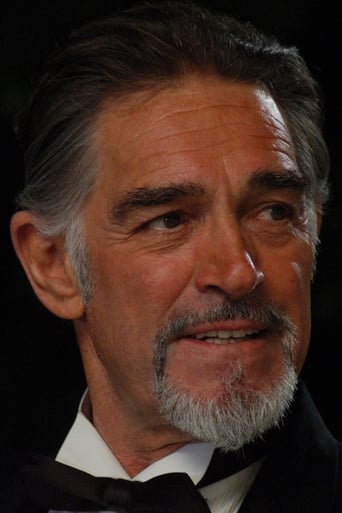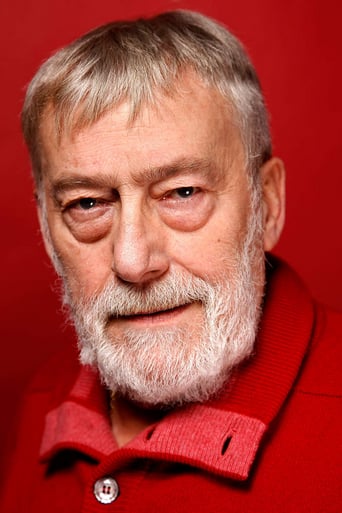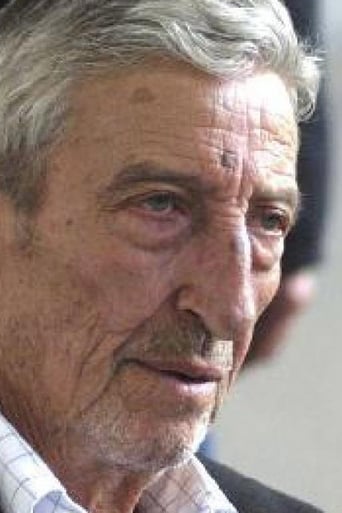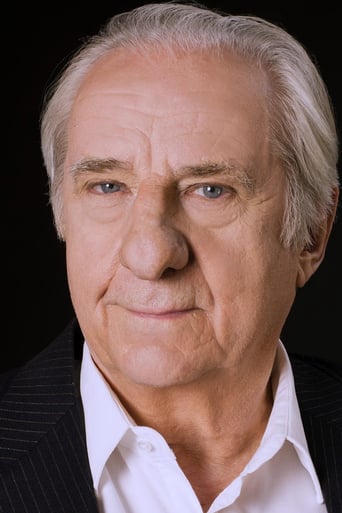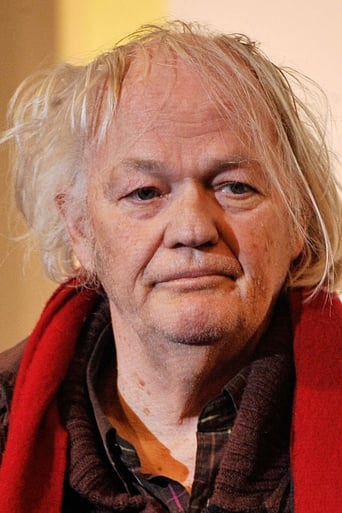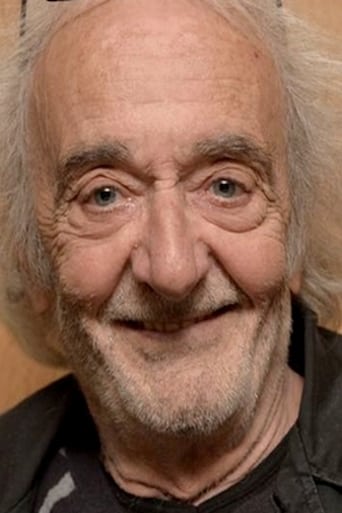GUENOT PHILIPPE
If you are fond on French crime novels world, you know that this film was adapted from à Jean-Patrick Manchette's novel. One of the best French novelist from the seventies and eighties. The novel which this feature is adapted from was a very nihilistic tale against the institutions, governments and state rules. And this movie made by Claude Chabrol - whose it is not the kind of movies he usually did, you know that - this film seems very close, scene for scene, to the book. If you dare comparing, this film NADA is, to the genuine novel material, exactly the same that Jean-Pierre Melville's LE DEUXIEME Soufflé was to Jose Giovanni's novel. In both cases, the movies made from the books seem so close to them. But you would be damn wrong if you thought so. Concerning Melville's film, please read my comment. But about NADA, I repeat, Manchette gave us a story which enhanced the anarchists, or left winged terrorists, he tried to give them some good reasons to behave as they did. But if you read the book and then watch the movie very closely, you will notice that Chabrol doesn't have the same language. In a sort of way, he criticizes the anarchists. He wants to show to the audiences the emptiness of everything they do. In that purpose, he uses some sentences told by the anarchists characters. Even if, I repeat, the movie seemed to have been shot, "book handed". Page by page.The message was not the same.And, besides, I have already seen movies adapted very differently from novels but only on the "shape" - scenes - but not on the true meaning. For instance both RIFIFI films: RIFIFI CHEZ LES HOMMES and RIFIFI CHEZ LES FEMMES. I will finish by telling you that Michel Aumont gives in this film one of his best performances ever as the terrific, nasty, disgusting commissaire - superintendent - Goémond. Michel Aumont who is still alive and also a great stage performer.
jcappy
The NADA Group's weakness is that it's both too circumscribed by the state and too willing to mirror the state to count itself as revolutionary. The boldness of Chabrol's film is his picture of a criminal, sadistic authoritarian state, so that the first half of this equation is more than convincing. In his first and last theoretic statement, Diaz says: "Leftist and state-controlled terrorism, while their methods cannot be compared, are the two jaws of the same idiot trap." Yes, Diaz is right the trap he fell into was much of his own doing, but the failings of the cadre is in no way comparable to the nearly absolute social control of the state.This said, the outcome of the kidnapping of the US Ambassador, might have been more favorable--or not undertaken in the first place--if NADA was a truly revolutionary group. The greater the force, the stronger the internal politics have to be. That is, self-determination may not have been an option, but acting according to principle was. Three ways in which NADA reflects the state, and thus makes itself more vulnerable to the state, are in its treatment of women, in its casual reliance on violence, and in its adherence to spectacle.Upon entry into the US Ambasador's bordello suite, one NADA member announces "We are not sadists," presumably to ease "Salome" and claim a difference with the State. Granted, but NADA is sexist. It does practice sexual commodification and it does exploit women. Veronique Cash may not need a Madam, nor get paid for her services, but one of her services is obviously sexual. Women as sexy yes, love as sex no: this is the formula of both the State and NADA. And tellingly, Epeulard, mister experienced-revolutionary, does not want her in the group, but he does want her body. Cash is kind of like the drinks she serves, a kind of badge for the cadre's masculine status. Nameless, to both the police state and to the cadre, she identifies herself as "a kept girl" or "I'm a girl, I'm a whore." And is referred to as "a misunderstood bitch," which is, in a way, accurate. For she may be, in the end, the most subversive "member" of NADA. She alone is in touch with the natural world (her rabbits are the first victims of the massacre); she alone is armed enough to take measure of vengeance for it, and she alone can take the measure of the failed men around her (the only man shown doing housework is Epeulard --and only after his impotence is made clear). But it's her shocking mind-blown murder at the hands of the fully masked Goeman that's the ultimate proof both a brutally sexist state, and a feckless revolutionary cadre.In the tete-a-tete between the Minister and Goemond, the siege of NADA is put on the level of military operation, cross-hairs, cold calculation, and summarial justice: "I don't care how you do the job," says the Minister. "Besides, is it worth taking them alive?" "If up to me," says Goemond, "I would put them to the wall... but the Ambassador?" "If they liquidate him," says the Minister, "how dreadful... the left has a tiny fraction of sympathy which could no longer identify with the left." NADA's violence casts a very weak shadow next to the fatherland's, but it's relation to it is no less obvious. The bungled abduction, the shoddy planning, the death of the cop and the house worker, the male swagger and callousness, the casual romance of the plan, the cynicism and indifference, and the suicidal, heroic tendencies, are all part of NADA's violence. An actual opportunity does not a timely and thought-out political action make. One result of this is the immediate round-up, interrogation and, in some cases, torture, of a thousand Parisian lefties. Another is the subsequent deaths of every damn one of the NADA comrades. All this cannot simply be cast off as expediency. It is not true as Goemond says "that leftist have no guts," but it may true that action and weapons are more endearing to them than intelligence or defense.Yes, "the revolution will not be televised." But the state/media are one and NADA gets cast in a story it cannot direct. Lifestyle, personality, posturing, and cool gestures can inform their narrative, while intelligence, community, and reason are what the omnipresent cameras and TV screens cannot shoot nor display. So if the state has its script, stagecraft, and empire style down pat, NADA, unable to produce its own image, must capitulate in its own demise. Each member's role is cued by the shadows of little screens. One adapts an all-black clothing scheme, another shouts "I'd rather die in blood, than live in a pile of poop," another goes down with "shit, long live death." No wonder XX says "the 60s had a goal;" and calls this malleable giddy group a "bunch of kooks." Diaz, on the lam after the siege, broadcasts his identity to a gas-attendant, trusting fame will spark the revolution: "tell the press they murdered us." NADA confuses popular support with voyeurism. And Diaz, believing in the simple idea of anti-authority is, like NADA itself,, politically apathetic, and never asserts any politics on its own terms. So, it's up to Treuffais, who's passed up the abduction, to offer the "short but full story of the Nada Group" which he does in words and not images.
dbdumonteil
"Nada" was the most inadequate follow-up to "Les NOces Rouges" which,with hindsight,appears now as the last good movie of Chabrol's golden era (1967-1973) "Nada" is Chabrol's first real attempt at a wholly political movie;his previous work "les Noces Rouges" had also political elements but it was more a psychological thriller with the usual look at society in French provinces."Nada" includes terrorists,ambassador,hostage-taking,a lot of blood,not really Chabrol's field.A heterogeneous cast gives the movie the coup de grâce :only Duchaussoy,who had already played with the director ,and Maurice Garrel are up to scratch.Viviane Romance ,one of Duvivier's actresses ("la Belle Equipe" "Panique") ,is wasted as a madam (Gabrielle).Italian actors (Fabio Testi,Lou Castel)are awful.With "Nada" this a second period of barren inspiration for Chabrol .It would be "Violette Nozières" before he was again at the top of his game.
